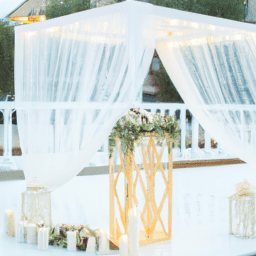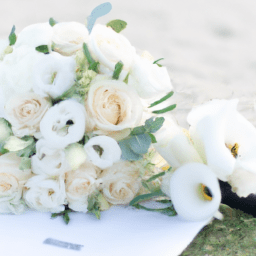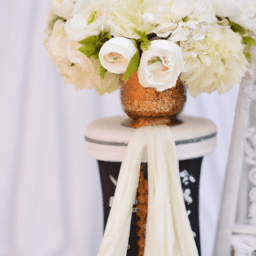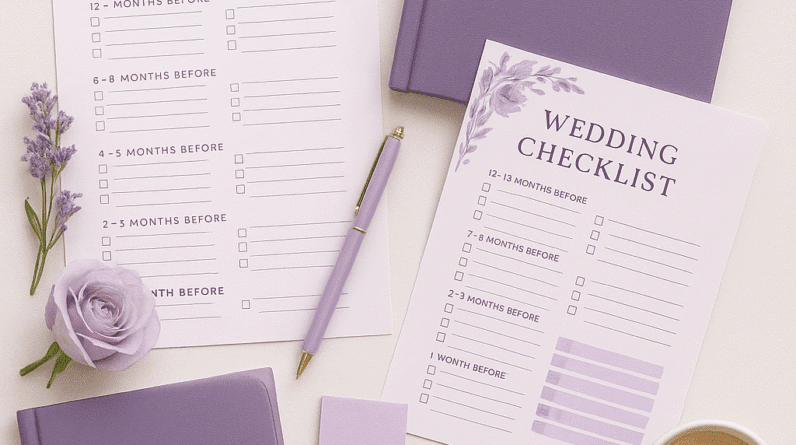
How to Get Started with white wedding
How to Get Started with white wedding Planning a white wedding can be both exciting and overwhelming. From choosing the perfect venue to selecting the right flowers, every detail matters. If you’re wondering how to get started with a white wedding, you’re in the right place! This complete guide will help you navigate through the process, ensuring that your big day is as magical as you’ve always dreamed.
Planning a white wedding begins with establishing a clear vision of what you desire for your special day. Start by setting a budget that encompasses venue fees, catering, attire, and decorations. Next, choose a date and book a venue that can accommodate your guest list while reflecting the elegance of a white wedding. Focus on selecting classic white flowers, tailored décor, and timeless attire to create a cohesive aesthetic. Consider creating a wedding theme that resonates with your personal style, from vintage to modern. Additionally, enlist the help of trusted vendors and make a checklist to organize all details leading up to the big day. With careful planning and attention to detail, your white wedding can be a beautiful and memorable celebration.

1. Define Your Vision
The first step in how to get started with a white wedding is to define your vision. Think about the elements that are most important to you. Do you envision a traditional ceremony or a more modern celebration? Create a mood board with images that resonate with your style, such as dresses, venues, and color palettes. This will serve as a reference throughout your planning process.
2. Set a Budget
Once you have a clear vision, it’s time to set a realistic budget. Consider all the components of your wedding including the venue, catering, attire, décor, and entertainment. Allocate funds to each category and stick to your budget as closely as possible. This will not only help you manage your expenses but also relieve some of the stress associated with wedding planning.
3. Choose a Date and Venue
Selecting the perfect date and venue is crucial in how to get started with a white wedding. Consider the season and the type of atmosphere you want to create. Popular venues for white weddings include churches, gardens, and banquet halls, but don’t shy away from unique locations that reflect your personality. Make sure to book your venue well in advance, especially if you’re planning a wedding during peak season.
4. Create Your Guest List
Your guest list will have a significant impact on your budget and venue choice. Start drafting a list of family, friends, and acquaintances you want to invite. Once you have a preliminary list, you can make adjustments to fit your budget and venue capacity. Remember, this is your special day, so invite those who matter most to you!

After finalizing the venue and guest list, you can focus on hiring vendors who will help bring your vision to life. Research and interview photographers, florists, caterers, and wedding planners. Look for reviews and ask for recommendations to find reliable professionals. Building a solid team of vendors is critical when learning how to get started with a white wedding.
- What is your wedding theme?
- What is your budget?
- How many guests are you expecting?
Having a well-defined vision will make it easier to find vendors who align with your style and budget.
Researching Wedding Vendors
Once you have a vision in place, it’s time to research potential vendors. Here are some strategies to help you:
1. Use Social Media: Platforms like Instagram and Pinterest are great for finding inspiration and discovering local vendors
2. Read Reviews: Websites like The Knot and WeddingWire can provide insights and reviews from other couples who have worked with various vendors
3. Ask for Recommendations: Don’t hesitate to ask friends, family, or recently married couples for their suggestions on who to hire wedding vendors.

Interviewing Potential Vendors
Once you have a list of potential vendors, it’s time to reach out and schedule interviews. During the interview, consider asking the following questions:
- How many weddings have you worked on?
- Can you provide references?
- What is included in your pricing?
These questions can help you gauge if the vendor is a good fit for your wedding.
Checking Availability and Pricing
After narrowing down your options, check the availability of your top choices. It’s best to hire wedding vendors as soon as possible since popular vendors can get booked up quickly, especially during peak wedding seasons. Additionally, make sure to discuss pricing and payment options upfront to avoid any surprises later on.
Finalizing Contracts
Once you’ve made your selection, it’s essential to finalize contracts with all hired vendors. Ensure that all details are clearly outlined, such as dates, services provided, and payment terms. This will help protect both you and the vendor and ensure that everyone is on the same page.
Building a Relationship with Your Vendors
A successful wedding day relies on communication and collaboration. Once you hire wedding vendors, keep an open line of communication and feel free to share any updates or changes regarding your plans. Building a good relationship can lead to a smoother planning process and a more successful wedding day.
Hiring the right wedding vendors is key to creating a beautiful and memorable event. By taking the time to research, interview, and finalize contracts with the perfect vendors, you can ensure that your wedding day is everything you’ve dreamed of. Remember, when in doubt, always trust your instincts and go with the vendors who resonate with your vision. Happy planning!
6. Plan the Details
This stage encompasses everything from choosing your wedding attire to selecting the right decorations. For a classic white wedding, think about a timeless wedding dress, elegant bridesmaid dresses, and tasteful décor that includes white flowers and candles. Don’t forget to plan the logistics such as transportation, timeline, and seating arrangements.
7. Don’t Forget About Personal Touches
Adding personal touches to your wedding can elevate your celebration and make it uniquely yours. Consider incorporating family traditions, personalized vows, or a custom cocktail that reflects your love story. These elements make your wedding memorable and special.
Creating a detailed timeline is crucial in ensuring everything flows smoothly on your wedding day. Outline the schedule for the ceremony and reception, including time for hair and makeup, transportation, and family photos. Share this timeline with your vendors to keep them informed about the schedule.
9. Stay Organized and Enjoy the Process
Throughout the planning process, stay organized. Use tools like spreadsheets, wedding planning apps, or binders to keep track of tasks and deadlines. Remember that planning a wedding should be a fun and enjoyable process, so take the time to relish these moments with your partner.
Conclusion
Now that you know how to get started with a white wedding, it’s time to take action! Follow these steps to ensure that your dream wedding becomes a beautiful reality. Finally, remember to cherish every moment of your special day, as it will fly by in the blink of an eye. Happy planning!






